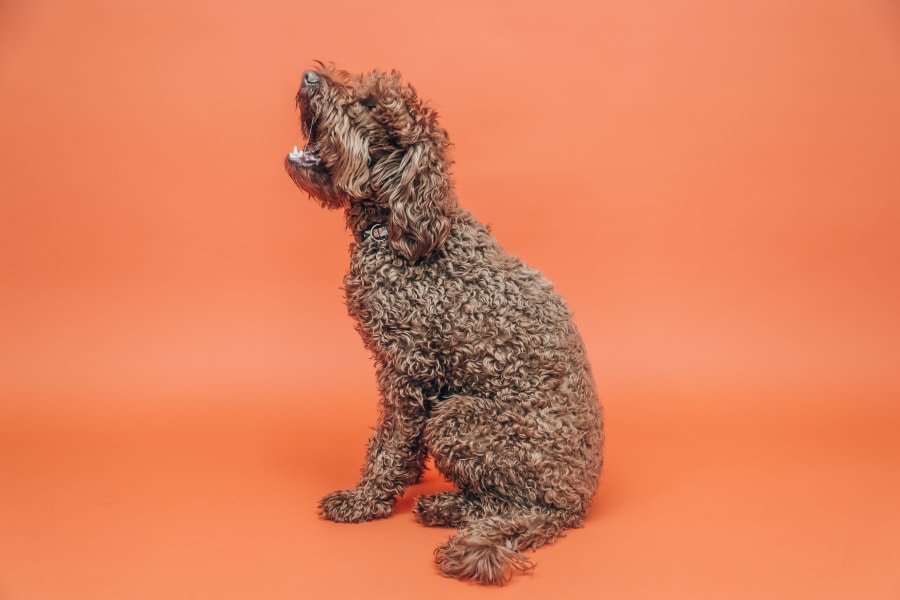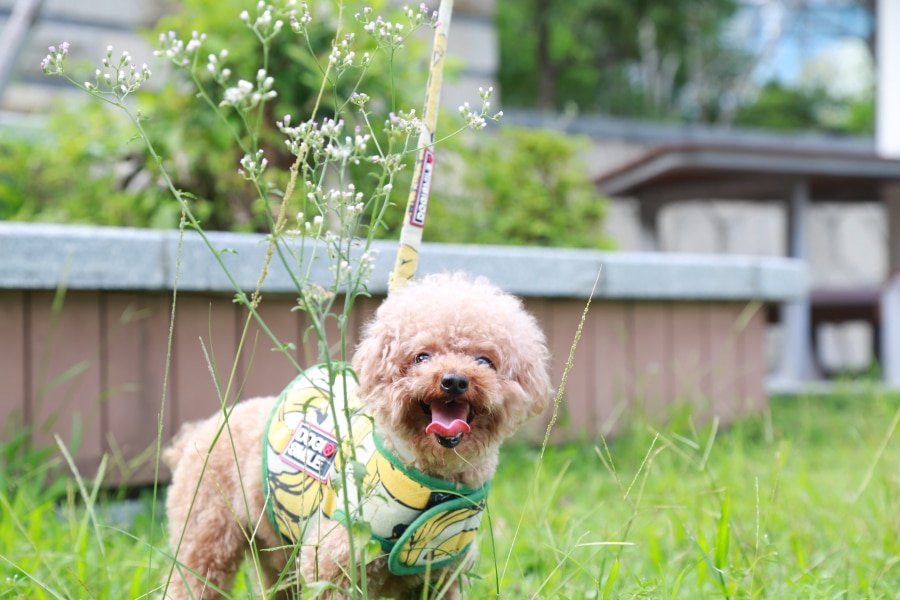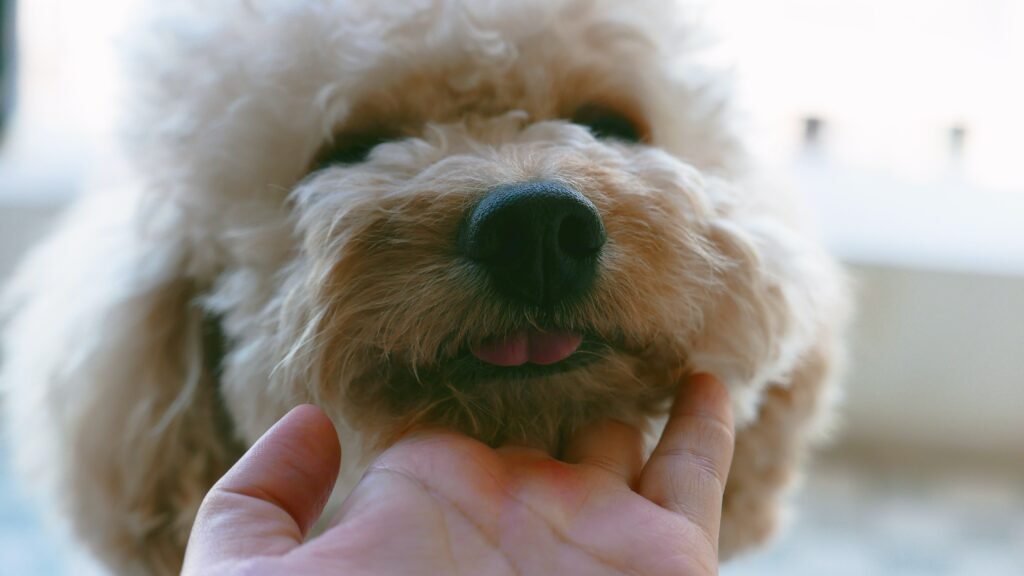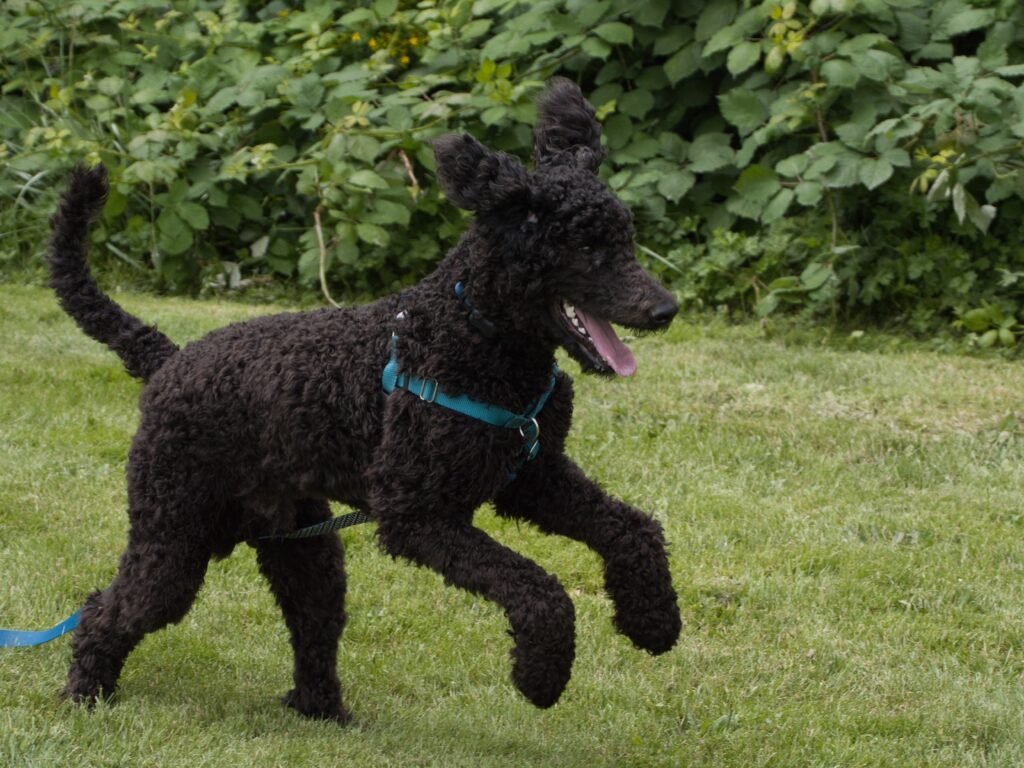A Brief Historical Background of Poodles:
Believed to have originated from Germany, Poodles are known for their friendly nature. Many French royal families and famous historical personalities chose a poodle pure breed as their canine companion. People who had Poodles back then would be proud owners, and others would wish to have one as their furry companion. The interest continues even in today’s world as well.
Historically poodles were used for hunting ducks because they are good at swimming, hence their French name Caniche. The name comes from the French word cane meaning female duck. The name Poodle however is derived from the German word “pudel,” which means to splash in the water. It is widely believed that these active dogs originated from Germany, but there is a controversy surrounding their origin.
American, British and Canadian Kennel Clubs supported the stance that the pooches are of German origin. The FCI, on the other hand, insisted that the breed has French origin instead. Germany agreed to the Poodle’s French origin to avoid any conflict.

According to the American Kennel Club, there are three types of Poodles: common, Miniatures, and Toy Poodles. However, as per FCI, Poodles come in four breeds: standard, medium, Miniature, and Toy. Miniature and Toy Poodles are mainly kept for companionship only, considering their small size. Standard Poodles are the oldest breed among these, and hunters would use them for their swimming capabilities.
Quick Facts About Poodle:
| TRAITS | DETAILS |
|---|---|
| Life Expectancy | 12 – 15 years |
| Size | Medium |
| Energy Level | Medium to high |
| Hypoallergenic | Yes |
| Grooming Level | High maintenance |
| Shedding | Low |
| Height | Male: 18”-24” (46-61 cm) Female: 18”-24” (46-61 cm) |
| Weight | Male: 45 to 70 lbs (20 to 30 kgs) Female: 45 to 60 lbs (20 to 27 kgs) |
Poodle’s Appearance:
Since Poodles have a long muzzle, long neck, round head, and floppy ears, they look rather lanky. Despite looking royale and elegant, they tend to be very playful and cheerful and aren’t stern at all. They are heavily haired, with curly locks and thick moisture and water-resistant coats (no wonder they’re good swimmers).

Height of A Poodle:
Standard Poodles are about 15 inches tall, whereas Miniature Poodles are under 15 inches and Toy Poodles are less than 10 inches tall.
Color Choices:
Poodles come in a range of 11 recognized colors, which are black, grey, silver beige, silver, white, cream, red, apricot, brown, café au lait, and blue.
Coat:
Poodles have a single coat that’s thick, which helps them swim and protects them from the harshness of cold water. Their dense and curly fur makes them shed less, which is why people generally call Poodles a “non-shedding breed.” Their hair doesn’t fall off but rather sticks to their coat since it’s very dense. For this reason, Poodles need to be groomed regularly.
Personality traits of a Poodle:
Child Friendly:
Poodles are suitable for families with kids, as this breed is quite active, energetic, and playful. However, the children need to be active so they can match the pup’s energy.
Sociable With Other Pets:

Poodles need to be trained and socialized before they get comfortable with other animals. When socializing your furry friend with other animals, make sure the environment is quiet and that the other pets don’t display any roughness (this can make your pup anxious). Other than that, Poodles are usually very pleasant and friendly, and once they become familiar with other pets, they can become best buddies for life!
Apartment Friendly:
Miniature and Toy Poodles are the most apartment-friendly options! Standard Poodles are bigger and more active, meaning they need to exercise more. If you take them outside for a jog or run twice a day, apartment life should suit common Poodles just fine.
Intelligence:
Poodles are a smart breed, meaning they learn very quickly. Their intelligence makes them easy to train. After all, they are the second most intelligent dog in the world. They are quite adaptive and obedient as well.
Barking Restraint:
First, you need to pay attention to why they are barking. For example, your Poodle might have heard a funny sound or “sensed” a possible threat. Also, they might be barking to let you know that they need exercise or food.
If your Poodle keeps barking for no reason and causing a disturbance, do not shout at them. Respond once your pet stops barking and becomes silent. You can try giving your pup some toys to play with, so they’re distracted from the barking.
Prey Drive in Poodles:
Hunters developed Poodles as retrievers who catch prey. Because of this, they do have a moderate to high prey drive. If they spot small animals, such as squirrels, birds, and mice, prepare for them to give chase. But you need not worry if you have a cat or other small dogs as pets, as your Poodle will most likely not see them as prey.
However, make sure you supervise interactions between them, as Poodles tend to get very excited and energetic during playtime. If your cat or other dog is very small, the Poodle might hurt them unintentionally.
How to Care for a Poodle:
Having a Poodle (or any dog for that matter) requires proper care and maintenance to avoid any health risks.

Grooming:
Make sure you brush your Poodle’s coat at least two times a week if its hair is short. If the hair is long, however, brush it daily. Also, take your Poodle to a professional groomer regularly for clipping. It is recommended to keep short hair for regular dogs, as it is more comfortable and manageable for the pooch. Clean the insides of your Poodle’s ears and remove any wax build-up by dampening a cotton ball and cleaning thoroughly.
Diet and Feeding:
Dog experts recommend that you avoid feeding your pup any that contains preservatives, artificial coloring, and fillers. If given frequently, this may lead to some serious health issues. Experts recommend a diet rich in raw, fresh foods for Poodles to thrive. You can also give him treats, but make sure they are 100% natural.
Also, make sure your Poodle is getting enough water. For Toy Poodles, half a cup of water is enough. But in summers, experts recommend you give them a full cup. Miniature Poodles should have one and a half cups of water per day or three cups if it’s the summer. Common Poodles must have at least six and a half cups of water per day, but they should be drinking at least 12 cups in the summer.
Activity and Exercise Requirements:
Poodles need proper exercise since they are an energetic breed. Toy and Miniature Poodles need moderate exercise, and a short walk around the house is enough for them. However, common Poodles need more space to exercise and play properly. That is why it is better to let them into your backyard so they can exercise without restraints. If you live in an apartment, take your Poodles for a daily walk.
Health Problems:
Generally, Poodles are a healthy breed and can live up to 18 years. However, they sometimes may suffer from diseases that are usually inherited from their parents.
Inherited diseases include hip dysplasia, Addison’s disease, bloat, thyroid problems, hypoglycemia, and cancer. Apart from hereditary diseases, they may also get epilepsy, eyelid problems, and ear infections.
To avoid the conditions, get your Poodle checked before you buy/adopt them. And once you have a Poodle, don’t forget to take them for their regular checkups at the vet.
How to train a Poodle:
Since Poodles are quick learners, they memorize their names as soon as possible for better instruction and training. Call them with their name politely and gesture them as if you are calling them towards you; this will make them understand that it’s their name.

Train your Poodle to “sit,” “lie down,” “stay,” and “come” by saying the words out aloud. Make sure to use gestures as well, so your Poodle understands the instructions better.
Most importantly, be patient with your Poodles during the training period. You may not like some of their habits, or they might not be sleeping on time in the beginning. It will all fall in place gradually!
Daily Routine for a Happy Poodle:
To keep your Poodle happy and healthy, you need to follow a proper routine with consistency. A consistent routine will ensure your Poodle is healthy and energetic. If you have owned a pet before, this might not be tricky or hard for you. But if you’re a first-time owner, it will take a bit of time to understand and stick to the routine.
Morning
7:00 am to 8:00 am:
By 7:00 am, your Poodle must be up, take her out for a morning jog and then let her potty.
8:00 am to 8:30 am:
Train your Poodle during this time, along with giving them a healthy, nutritious breakfast.
8:30 am to 9:00 am:
Take your dog out for a potty break again 8-10 minutes before 9 am. After 9 am, you can go about your day and either take your Poodle with you using a crate or have a pet-sitter or any other family member look after her
Afternoon
1:00 pm to 2:00 pm:
Around this time, take your Poodle for a potty break and then play and interact with them.
Evening
6:00 pm to 7:00 pm:
Go for a walk with your Poodle and then take her out to the potty.
7:00 pm to 8:00 pm:
By this time, the Poodle must be ready for another meal. After all the walking and playing, she must be attentive, making it the right time to train her. Later on, give her treats and a meal after some time. You can also have a little play session afterward.
10:00 pm to 10:30 pm:
Around this time, take your pet for a potty break and then put her to sleep.
Is Poodle the Right Dog for You?
Poodles are a great choice if you want a cheerful dog. But if you are old or prefer dogs that don’t require a lot of exercises, Toy Poodles are good for you. On the other hand, if you want to have a Poodle with light to medium energy levels, Miniature Poodles are the right option. And if you can handle an active Poodle with medium to high activity, go with standard Poodles.
Poodles are high-maintenance dogs, so consider being a parent if you can groom them yourself regularly. If you can afford one, consider hiring a professional groomer if you are too busy to handle it.
Should You Buy or Adopt a Poodle?
A puppy starts from 500$ to 1500$ for standard Poodles and 900$ to 2500$ for miniatures and Toy Poodles. It would be better if you buy a Poodle from a breeder, as this way you can have a piece of mind knowing that they are healthy and tested. But if budget is a concern, you can opt for adopting a Poodle, as you can find them at a shelter.
You can also find one for adoption on social media platforms. Before you adopt a Poodle, get them tested for diseases before bringing them home.
FAQs About the Poodle:
Poodle Facts and Figures Summary:
Appearance
- Squared face
- Short nose
- Wrinkled face
- Timid look
- Pointed ears
How to care for a Poodle
- Brush hair and teeth regularly
- Cleaning ear wax timely
- Proper healthy diet
- Enough exercise and water intake
Health Problems
- Hip dysplasia
- Addison’s disease
- Hypoglycemia
- Cancers
- Thyroid problems
- Bloat
- Epilepsy
- Ear infections
Personality traits
- Friendly
- Smart
- Energetic
- Playful
How to train
- Making them aware of their name
- Rewarding obedience
- Gestures alongside vocal instructions
Daily Routine
- Waking up, jog and potty in the morning
- Breakfast
- Walk, play and potty during the afternoon
- In the evening, going out for some play and walk
- Training and treats
- Dinner
- Potty and sleep
